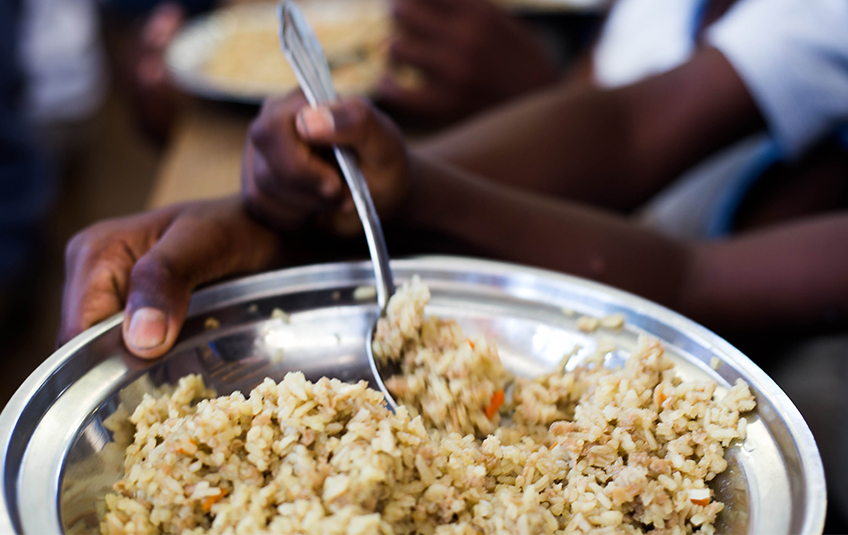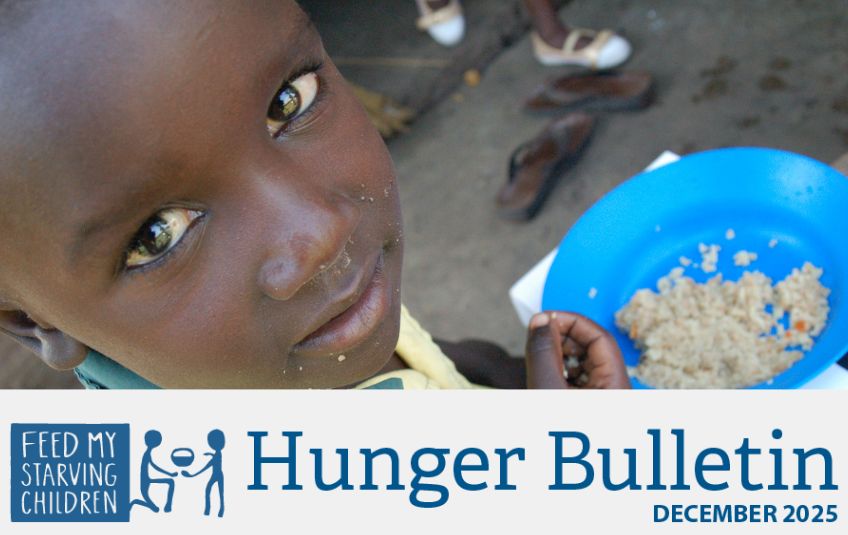The Feed
Stories of Feeding God's Children Hungry in Body & Spirit
“Schools are the ideal setting to support the nutrition and development of children and youth” – FAO
Bridgette Springer is the International Communications Specialist at Feed My Starving Children. She works closely with FMSC's partner organizations in 70 countries to cultivate stories for marketing materials.
Precilla was one of five students – and the only girl – in her district to receive the highest score on Uganda’s national exam. Because of her score, Precilla will receive a scholarship for high school and further professional training.
Many students in Uganda have trouble on the national exams because they only come to school in the morning.
In the afternoon, they have to help their families economically or are too hungry to learn.
FMSC’s partner, Feed the Hungry, provides a school meal every day to students like Precilla.

An estimated 368 million children receive a meal at school every day in developing and developed countries, according to the World Food Programme.
School meals not only draw children into the classroom, they provide an incentive to continue their education. Improvements in education and health, in turn, have a direct effect on children’s ability to break the cycle of poverty.
Every day, FMSC’s partners around the world work to support these efforts. In a recent survey, 35 percent of FMSC partners reported that school meal programs are the primary context in which they use MannaPack products.
Benefits of school meals
• Increase attention and concentration
• Produce gains in cognitive function and learning
• Reduce absenteeism
• Increase the duration of schooling
• Improve educational outcomes (performance, dropout and repetition)
• Alleviate micro-nutrient deficiencies
• Promote community participation
(World Bank)
“Few other programs offer such an impactful and diverse return on investment. School meals support education and nutrition while promoting a means for people to lift themselves – and their communities – out of poverty."
School meals contribute to the Sustainable Development Goals (SDGs)*
• Goal 2: zero hunger• Goal 4: quality education
• Goal 5: gender equality
• Goal 1: no poverty
• Goal 8: decent work and economic growth
• Goal 10: reduced inequalities
(World Food Programme)
What you can do
As an FMSC volunteer and donor, you can help us reach more of the 66 million primary school aged children who still go to school hungry across the developing world.Become a Hope Champion: Raise funds for the meals requested by partners to sustain their school meal programs.
Volunteer to pack meals: School is in session year-round, and we need your help to pack and ship the requested meals.
Become a Hope Sustainer: Students like Precilla rely on your monthly donations to receive a meal at school every day.
*Editor’s note: The SDGs were adopted by the United Nations (UN) in 2015 to build on the successes of the Millennium Development Goals (MDGs) and respond to new challenges. These 17 goals and 169 targets, to be completed by 2030, work towards poverty alleviation through social progress, economic growth and environmental protection. Learn more about the SDGs here.
Subscribe to The Feed
We'll periodically send stories of hope to your inbox.



